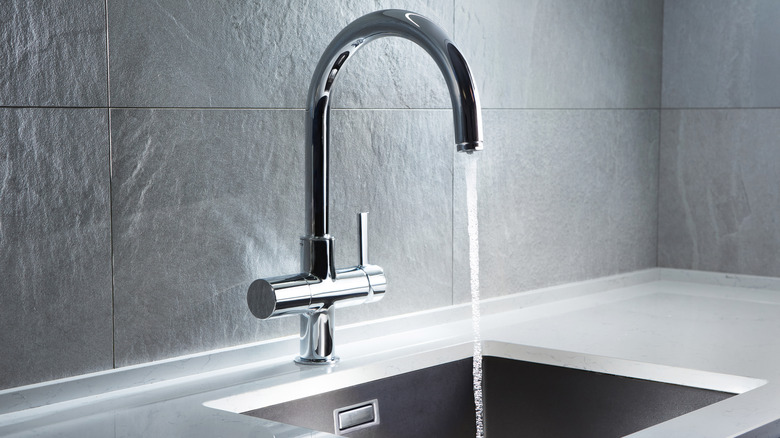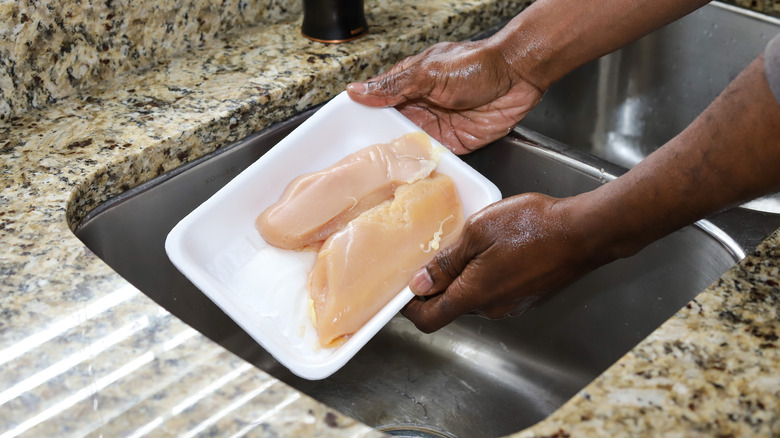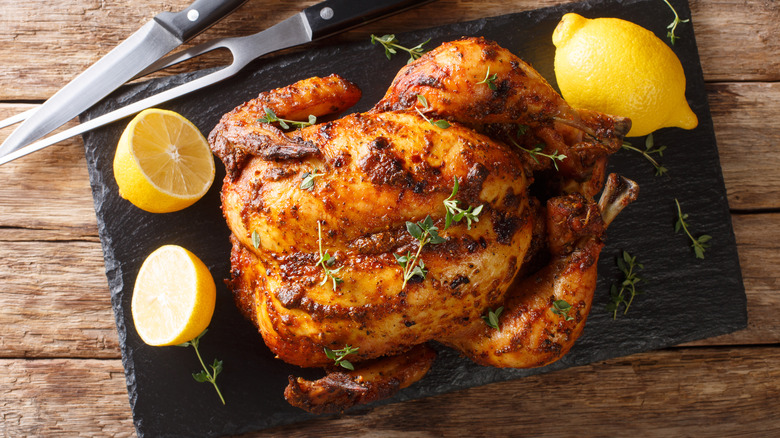How To Rescue Your Sink From Raw Chicken Juice
Unlike some other types of meat, chicken is one that should always be cooked through. There is no rare or medium when it comes to chicken. Get that temperature above 165 degrees Fahrenheit, period. Raw chicken can harbor dangerous bacteria, and the only way to guarantee safe eating is to cook it completely. However, just taking a meat thermometer and checking the chicken's temperature is not enough. There are other sneaky ways you could potentially expose your body to those dangerous germs.
It's important to be very cautious when preparing any type of raw meat, and chicken is no exception. The CDC even says to make sure the chicken is kept away from any already-prepared foods in order to prevent chicken juice from splashing onto something that's ready to eat. It's that serious. If you're preparing the chicken in or around your sink, there are a few things to know as well.
How to properly clean your sink
If you've simply been rinsing your sink with soapy water, you're doing it wrong. There are actually two steps involved when it comes to keeping your kitchen clean, including the sink: cleaning and sanitizing.
According to the USDA, cleaning with soap alone doesn't necessarily kill bacteria. Rather, it removes "dirt, grime, and some bacteria from a surface" without actually killing all those little germs. Cleaning is just the setup for the sanitization process. After you've cleaned the sink's surface with soap and water, you need to sanitize your sink to make sure it is truly germ-free. The USDA recommends either a homemade solution, which can be made by combining 1 gallon of water with 1 tablespoon of liquid chlorine bleach, or a store-bought sanitizing liquid or wipe.
If you don't want to use bleach, Angi provides various homemade solution alternatives, with ingredients such as rubbing alcohol, hydrogen peroxide, and vinegar with lemon.
Why you should never wash raw chicken
Though it could be tempting to wash your chicken before cooking it, it's actually not recommended. The USDA says that washing raw meat or poultry can lead to what's known as cross-contamination, which occurs when germs from one food wind up contaminating different foods or surfaces (for example, the CDC's remarks mentioned above about not letting raw chicken juice splash onto other foods).
When you rinse chicken, the water makes contact with the chicken's surface, then splashes off the chicken and lands in the sink, on countertops, or potentially on other food. This allows the bacteria to transfer, and if those surfaces are not properly cleaned or cooked afterward, the risk of foodborne illness increases.
A 2019 study backs up this theory. The study found that those who washed their chicken were at a higher risk of contracting a foodborne illness due to cross-contamination. Should you choose to wash your chicken, it's extremely important to follow the two-step method of cleaning and sanitizing once you're done. However, the wisest idea is to forego the washing altogether.


